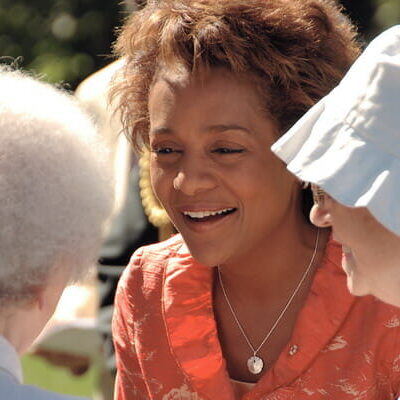
To be hopeful or to despair: that is the central question for young people in today’s political context.
This year’s Shaar Shalom lecture, given on Oct. 16, 2019 by the Right Honourable Michaëlle Jean, a former Governor-General of Canada, confronted this dilemma. Entitled “Shared Humanity: Generating Hope in an Era of Despair,” the goal of the lecture, at first, felt naïve in the face of our current crises around wide-spread xenophobia, the ever-widening wealth gap, and rising global temperatures.
According to her mandate, Jean’s time as governor-general aimed “to reach out to the most remote of communities, to cultural groups, civic associations, and activist organizations.” This mandate comes from her personal commitment to voicing “ideas and thoughts that speak to our shared experience” to “reshape the common world.” These commitments have taken her far and wide to some of the world’s most desolate places, but most recently, she told us, they took her to her native Haiti.
Hope in action
She told the audience about a group of Haitian farmer-entrepreneurs trying to re-invigorate their country’s soil ravaged by natural disaster and generating extra sustainable income by starting their own eco-friendly cocoa farm. To Jean, “they are hope in action,” because, in the face of the despair, they are “empowered, ingenious, [and] resourceful.” They confirm her conviction that she “turn[s] to hope because [she] must, because there is [sic].” Specifically, there is hope in young people. At the end of her talk, she dubbed Generation Z (those of us born from 1997-2012) as “Generation Hope.”
Jean’s relentless optimism falls short, according to Audrey Chan, a student at the University of King’s College. She’s active on Instagram about the anti-government protests in her home country, Hong Kong. Most recently, she helped organize a demonstration in solidarity with the Hong Kong protesters. She shares Jean’s belief that hope is, in Chan’s words, “necessary to live.” However, where Jean repeated over and over that “hope is comfortable with uncertainty,” Chan believes the exact opposite. She told me she frequently asks herself, “how can people be passive?” That more people do not organize protests or take to social media is shocking to her, considering the complex web of cultural, political, and environmental problems our generation faces. Behind her incredulity lies the following conviction: “I guess it’s like, ‘if not me, then who?’”
Hopeful with pessimistic rebellion
Chan sees hope as a “responsibility.” To Chan, while hope’s demands might not always be tangible, she associates it with a call to action that is itself the ultimate demand of hope. Jean appears to believe that the rationale of hope lies in the reality that a better future is possible. Chan, on the other hand, believes that hope “is the end goal itself” because it inevitably leads to “raised awareness, [and] mobilization.” Chan insists she is not an optimist. Rather, she is “hopeful with a pessimistic rebellion.” She explained that she sees hope as an acknowledgement of the intolerability of current affairs — hence the “pessimistic” — coupled with the belief in one’s own ability to create positive change. Chan elaborated that “inaction means harm” regardless if one is optimistically convinced that the world will fix itself without intervention or if one is paralyzed by despair. And so, to her, remaining hopeful is simply “what we owe to other people because inaction leads to mass complacency.”
Hope is finding a way to community
The tension between Jean’s and Chan’s points of view is challenged by what Susan Dodd, a professor at the University of King’s College, has to say. She teaches an annual course in the Contemporary Studies department called “Apocalypse: The Revolutionary Transformation of Politics and Culture.” Basically, she considers the tension between hope and despair for a living. Like Chan, she insists on the communal aspect of hope. Dodd insists that the aim of hope is “finding a way to community — community that strives to entertain difference.” The essence of hope “the unpredictability of what good can come out of a conversation between two people” and so it can never exist in a vacuum. The purpose of hope, then, is to bring people together. According to Dodd, it is “the certainty that makes sense regardless of the outcome.”
Hope is indeed “uncomfortable with uncertainty” because one can only find it in human interactions, which are inherently unpredictable. For this reason, hope is something one owes to other people because it draws one out of the complacency of despair and towards other people.
I hate to admit that I do not have an answer to the question I raised at the beginning. However, in an age characterized by increasing political and social isolation, I will embrace any attitude towards the world that draws us out of ourselves and closer to those around us.






